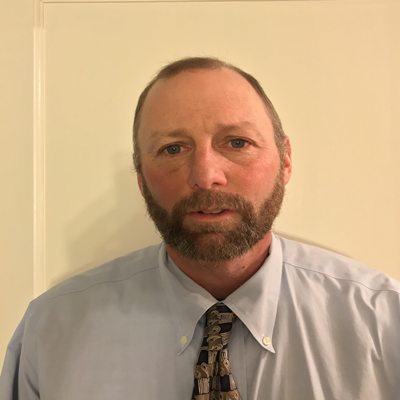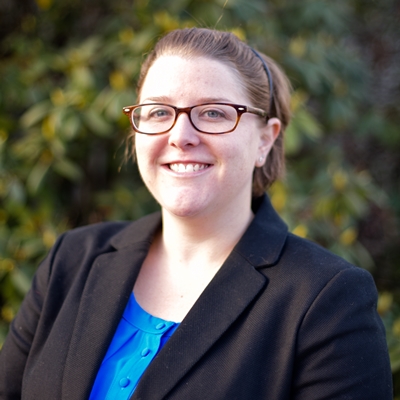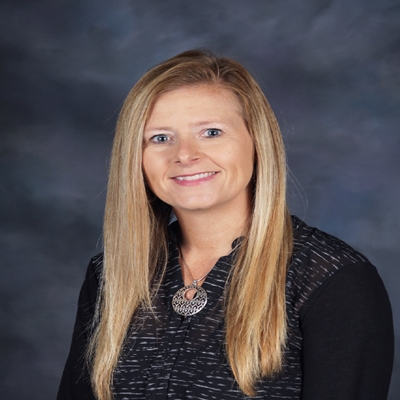Presentation Title: An Approach to Safety and Skills within an Elementary STEAM Environment
Abstract: With the growing demand for makerspaces, fab labs and steam labs, teachers are being asked to implement activities and projects that require certain skills and safety competencies. So, the question arises: how do we, as educators, best prepare and track our students regarding these safety concerns and fundamental skills? When students are engaged in STEAM-related activities in a variety of environments, whether in an independent or public school, teachers and administrators must be aware of both safety concerns and the teaching of skills. This presentation demonstrates how one school is preparing our students for STEAM opportunities throughout their elementary years, specifically highlighting grades 2-4. Participants will be introduced to a program designed for elementary age students that both motivates, tracks and teaches both safety and fundamental skills. Teachers will come away from the presentation with a clear example of how certain skills and safety issues can be addressed with younger students to help set the foundation for future work in STEAM environments which they may encounter. Genuine examples will be shared that include safety sheets, examples of student safety tests, and student made QR code videos. Students want to engage in project-based learning. This requires both skill sets and safety issues that both teachers and administrators need to address. This program is meant to be a model to teach to these concerns, track student readiness and motivate students to be aware of both safety and their ability to develop and hone new skills.
Biography: My name is Aaron Schomburg. I am the lower school science curriculum coordinator at Princeton Day Schools in New Jersey as well as one of the science teachers for grades PreK- 4. I am in charge of developing the curriculum and setting a solid foundation from which students will be successful as they continue into our middle and upper schools. I am currently on a 2-year committee to design and implement new STEAM facilities and curriculum. I am a member of the NJAIS professional development committee which formulates opportunities for independent schools in our state, of which, our latest was held as a STEM conference at Liberty Science Center and another later at the College and Academy of Saint Elizabeth. Pertinent professional development workshops that I have recently run include presenting in Hartford, San Diego, and Orlando for the National Science Teachers Association. I have also had two articles published in NSTA’s Science and Children journal, one of which was later included in an NSTA book entitled Stepping Up to Math and Science. I was featured in Independent School Magazine and have been cited for work with a group known as OSETI in Time magazine, Discover and The Astrophysical Journal.
Presentation Title: Animal Architects: Using Nature’s Builders to Teach STEAM Topics
Abstract: Have you ever wondered why a bee’s honeycomb is hexagonal in shape? Or how different species of birds create unique, weather-resistant nests? How are the tiny threads of a spider’s web able to catch insects while not trapping the spider? In this workshop we will explore animal architects, creatures that have perfected the art of engineering and design without the use of computers and technology! We’ll try our hand at recreating some feats of animal architecture: beaver dams, bird nests and spider webs to compare our engineering skills versus nature’s best builders. We’ll even explore technology and apps such as iNaturalist and Movie Maker that can help us to incorporate these topics into our early childhood classrooms or programming.
Biography: Julie Travaglini is the Education Program Director for Allegheny Land Trust and has worked in environmental education for more than 10 years in diverse settings such as nonprofits, zoos and arboretums. She is a Specialty Discipline Instructor for the state of Pennsylvania and provides state accredited professional development workshops for educators all over the state and at various local and state conferences. Julie serves as the Vice President of the Board of Directors for Science Tots, a non profit that aims to provide families and educators with STEAM resources and activities. She is also a trained facilitator in the national curricula of Project WET and Getting Little Feet WET.
Presentation Title: Teaching Computer Science through Music: an Introduction to EarSketch
Abstract: EarSketch is a free and online platform to teach introduction to Computer Science through music. It’s designed for High School teaching (and aligned with the AP CSP standards) but has been used in late elementary up to undergraduate classes. The languages used are Python and JavaScript, and the curriculum goes over computing concepts such as variables, functions, loops and conditionals with the help of corresponding musical concepts. When coding with EarSketch, students select loops for the 4,000-sound library and place them in a Digital Audio Workstation. They can also add effects, beats, structure their music in section, add random elements and much more. Most of the sounds are from popular genres such as Dubstep, Hip Hop and EDM. The authenticity and creativity of EarSketch have been shown to increase student engagement and desire to pursue computer science with particularly noticeable improvements for female students, often underrepresented in Computer Science. In the workshop, we will describe of the basic elements of EarSketch: the curriculum, the teacher materials, the sound library, the code editor, and the digital audio workstation. Then we will start the hands-on session: go over a selection of chapters and let the participants code their first music! This will be an introduction to the interface, core EarSketch functions, variables, looping, strings and conditionals. Participants will have the choice between coding in Python or JavaScript. For educators with younger students, we will also show the blocks mode, which allows for an introduction to Computer Science for late Elementary and Middle School students. We will also demonstrate features like sharing, downloading songs, collaboration, etc. In conclusion, we will address questions about how to implement EarSketch in the classroom. To have a first look at EarSketch, you can visit our website: earsketch.gatech.edu.
Other Speakers-
Karin Woodruff, Lincoln Elementary School, Library Media Specialist
Presentation Title: STEAMifying Storybooks in an Elementary Classroom
Abstract: With STEAM programs increasing in schools, teachers are inspiring students to build, create, tinker and make. The elementary classroom, makerspace and STEAM Lab provide ideal places for teachers to create a stage for learning by using engaging picture books that will hook students on a multitude of topics. In this session, participants will be provided with STEAM ideas that engage students using the engineering design process through the use of picture books. Attendees will participate in hands-on STEAM activities that range from coding using either Ozobots, Spheros, Cubelets, or Makey Makey to simple low-cost design and construction. The presenters will share resources that align with standards and can be used across the curriculum in grades 3-5.
Biography: Shannon Hill has been teaching for 14 years, all in the Talladega County School System. She taught 6th grade, 3rd grade, and is currently the Reading Specialist at Lincoln Elementary School. She has an Educational Specialist Degree in Elementary Education and is a National Board Certified Teacher. Throughout her teaching career, she has served as a STEAM Cohort Leader, Math and ELA Leader, Project Based Learning Trainer, and JSU CORE Presenter. She is AMSTI certified and was selected to attend the 2014 MEMTA ((Mickelson Exxon Mobil Teacher Academy) in Jersey City, New Jersey. In 2015, she was voted as Talladega County Elementary Teacher of the Year. Karin Woodruff is the Library Media Specialist at Lincoln Elementary School in the Talladega County School System. She has worked in this position for 13 years. In the six years prior, she taught 2nd and 3rd grades, as well as Kindergarten. She has Master’s Degrees in Early Childhood Education and Library Media Science. Karin has served in many leadership positions and is an advocate for the STEAM Initiative on the school and district levels. In 2017, she was voted as Elementary Teacher of the Year for Talladega County Schools.
Presentation Title: Student Safety in Cyberspace
50-minute breakout session
Abstract: This presentation is appropriate for elementary school teachers wanting to relay the importance of being a good digital citizen. Today’s student needs to learn an entirely new set of rules when on the internet. Within this program, teachers will see how to open up the conversation in a fun and engaging way with their students, as well as learn of several online resources that support their efforts in educating today’s digital explorer. The 21st century learner is a traveler of cyberspace on a daily basis. These students venture into unfamiliar territory without knowing that certain rules and etiquette should be followed. To ensure students act safely, behave respectfully and choose responsibly, it serves students well that educators teach them basic rules or ABC’s. These ABC’s should be followed by every cybercitizen. Challenges that students encounter when online are addressed during this session, including social media usage, cyberbullying, privacy and data protection. Teachers will also discuss appropriate and current laws and trends in sharing student information online.
Presentation Title: The ABCs of Cyber Citizenship
20-minute curriculum burst
Abstract: Would you give the keys to your car to a teenager without proper driver’s education? No, of course not. Could you teach a kindergarten student how to read before she knows the letters or sounds? No, that would be quite difficult. So why then do we give our youngest generation online access without teaching them some basic rules? Being a good cybercitizen is as easy as following the ABCs – ACT Safely, BEHAVE Respectfully, CHOOSE Responsibly. Attendees will receive a wealth of resources, including classroom videos, vocabulary, and parent support links, to bring the cyber safety message to their elementary school students.
Biography: Kimberly Franklin has worked in the field of education for over 20 years. Her career includes positions as Public Educator and Administrator, Program Manager for Disney Institute, Curriculum Designer for Laureate Education’s Walden University and K-12 STEM Learning Expert for NASA’s Department of Education. Kimberly is also an author and presenter. She is currently working on a series of STEM Books for elementary students, families, and educators that encourage students to explore SCIENCE, TECHNOLOGY, ENGINEERING, AND MATHEMATICS knowing that the future needs STEM subject experts.




